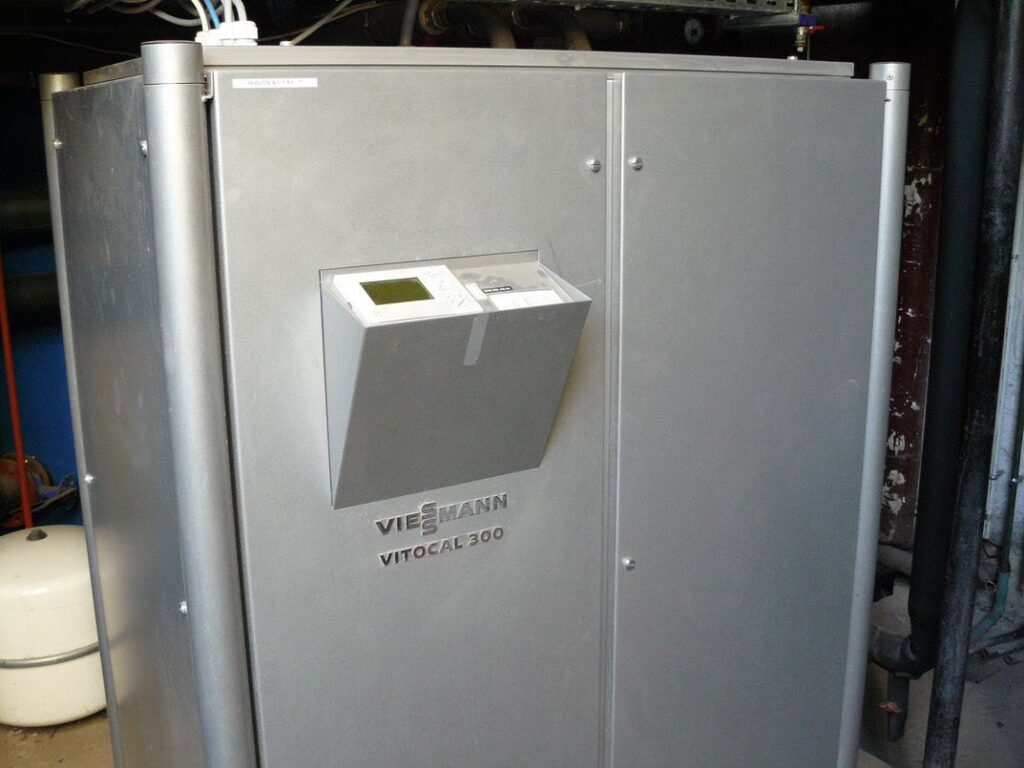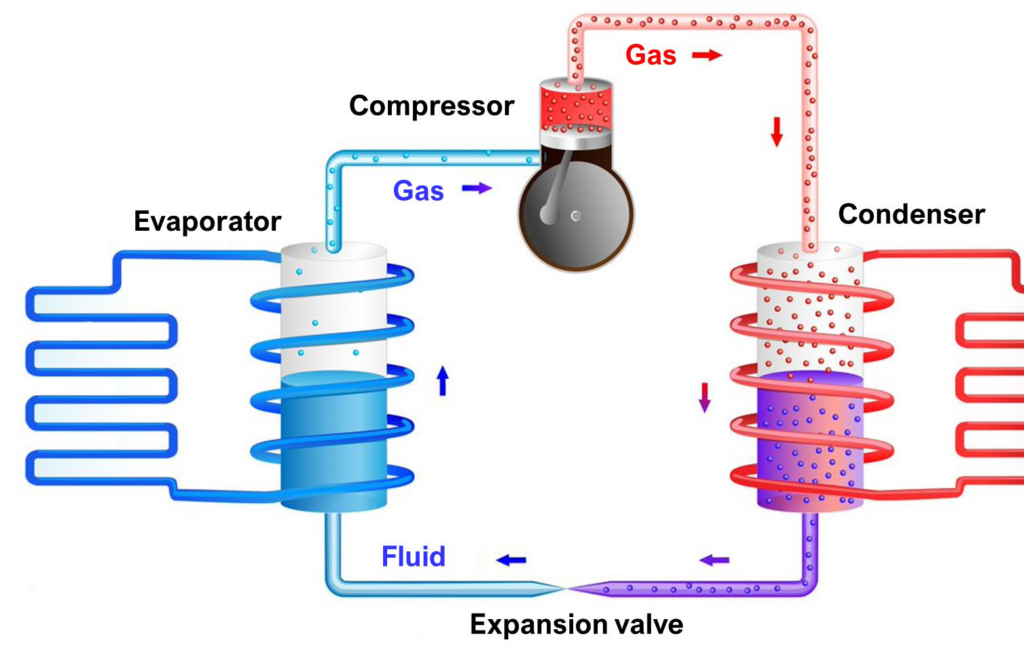Ground Source Heat Pumps
RENEWABLE & ALTERNATIVE
ENERGY SOURCES

Introduction
Heat pumps can produce energy from the heat of the ground, water sources or using air. We can use them for heating, cooling and producing hot water too. Heat pumps can utilise solar indirectly all year, which makes this alternative solution effective and reliable for independent buildings and block of flats as well in the city. Low temperature sources can also be exploited by heat pumps.
Description
Based on the type of source, we can differentiate geothermal (ground-source), water source and air source heat pumps.
It is possible to install the heat pumps to supply energy for an existing building, but it is more rentable if it is planned and installed for a new building.
Heat pumps can produce energy for floor and wall heating while the use of radiators is rather uneconomical.
Heat pumps have relatively high investment costs which can only return in long-term. In addition, the system’s maintenance costs contain the cost of electricity which is needed for the operation. The installation of heat pumps requires experts and engineers which also increases the investment costs.
Before installing heat pumps, preliminary pilot drilling might be necessary. In addition, licences might be required by the authorities for drilling which can prolong the construction time. The investment costs depend on the type of heat pump and setup needed.
About 4 kW thermal energy is generated per 1 kW of electricity used by the heat pump. It means about 300% efficiency. Conventional gas boilers have around 70-80%, direct electric heating has 35-45% efficiency.

Main Features
- Compressor
- Condenser
- Expansion valve
- Evaporator

Advantages and challenges
+ Installation can be finalized in a few months.
+ Low temperature sources can also be exploited by heat pumps.
+ Independent from the current strength of solar radiation.
+ Cheaper and cleaner solution than natural gas-based heat generation.
+ Heat pumps can be a great solution in case of supermarkets, shopping centres, schools, etc. in urban areas to reduce greenhouse gas emission significantly.
– Heat pumps using sources from ground have better performance but need more maintenance and can cause environmental damages.
– In some cases, only registered contractors can do the installation.
– Heat pumps need electricity to deliver the produced energy which can cause greenhouse gas emission depending on the electricity’s source.
– Heat pumps use fluorinated gases which, similarly to CO2, remain in the atmosphere for a long time contributing to global warming.

